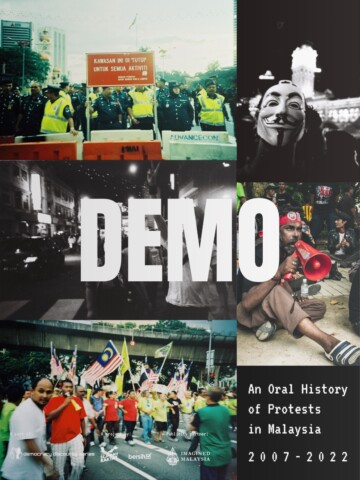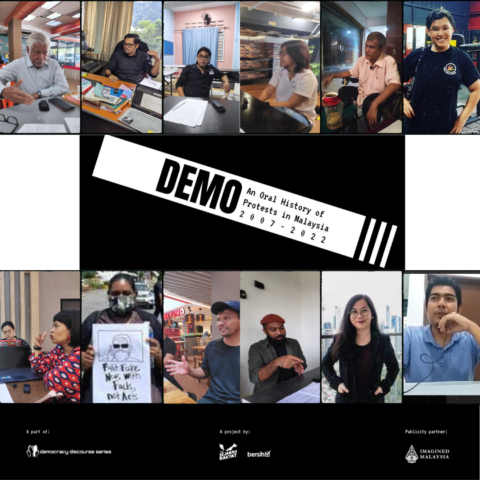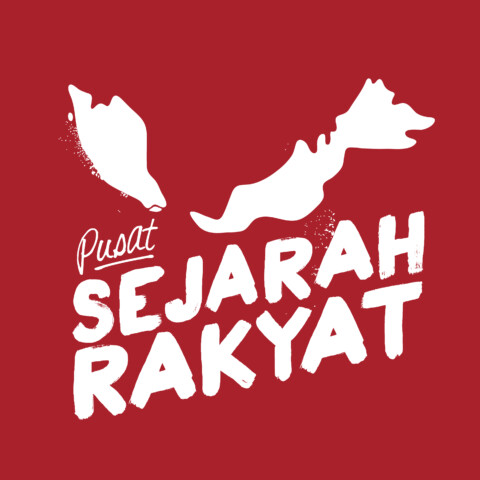Many challenges confront Malaysia’s fragile democracy. Of the six million newly emancipated voters – following constitutional amendments that lowered the voting age to 18 years old and automatically register eligible voters – a sizable chunk has no shared experience or collective memory of past democratic protests and being involved in mass social movements. In the absence of participatory democracy that meaningfully educates and empowers them, many voters are left to passively consume hateful ethnic and religious content on social media channels that pose a risk to democratic backsliding and contribute to political polarisation, as reflected in the 15th General Election. The DEMO project serves as a public intervention to reignite democratic values via documentation of and engagement with the lived experience of movement activists and protest participants in the past 15 years – a crucial period of political awakening in personal and national histories.
Archiving the Past, Educating the Future
This project originated from a lepak session in McD Masjid Jamek – a pivotal space for various protests in Kuala Lumpur – where we wondered aloud, “Where have all the protesters gone? What did they think of their protest days?”
We put up a team, started applying for grants, and began formulating a possible project. A modest attempt to document this vast collective memory of protests that involve so many thousands of Malaysians from all walks of life. Our modest DEMO project is necessarily limited in scope, but we hope to accomplish three things.

Firstly, DEMO serves as a historical record of both the principal and ordinary actors in Malaysia’s protest during a critical period in our history. Our archive of their stories aim to remember their struggle and the times they lived in so as to not have them lost to time, either unconsciously forgotten or deliberately cast aside.
Secondly, we want the project’s materials to serve as a resource for future activists and leaders. The interviews conducted aim to capture their entry into politics and activism, their evolving roles and involvement in protest movement, and reflections on its impact and efficacy. Thirdly, the DEMO project attempts to build a theory of protests within a Malaysian context. The totality of this project is expected to connect their struggles to wider national issues, the activists’ life history development and link the said personal and social struggles across this generation of social movements.

The primary output of this project will be the interviews conducted, released in the form of audio recordings to be archived, abridged online articles and social media highlights. In addition to these, we will organize walking tours in the near future to weave a collective narrative around past and future protest spaces in Malaysia; possibly video or live interviews with a handful of activists to highlight important but seldom-discussed protest movements. After these are concluded, we aim to put it all together into a book which compiles the stories of these protests and the people involved in it to document these lived experiences and to act as future reference.
About The Project Team

Ooi Kok Hin is the executive director of the Coalition for Clean and Fair Elections (Bersih). With over eight years of experience in think tank and civil society advocacy, he has written on electoral and party competitions, social movements, identity politics in plural societies and various public policy issues. He studied political science at The Ohio State University (USA) and Waseda University (Japan), where he graduated as salutatorian and won the best thesis in political science award. Most recently, he is the editor of the book, Making Democracy Work: Institutional Reforms for Malaysia.
Jeremy Lim is the secretary and project coordinator for Imagined Malaysia, working on the history of capitalism and popular movements in Malaysia and Southeast Asia. He was also a researcher with five years of experience at the Jeffrey Sachs Center on Sustainable Development and the Jeffrey Cheah Institute for Southeast Asia. He has written on topics such as electoral access, the Lawan Protests, nationalism in Malaysia, political theory and strategy, and more broadly, Malaysia’s political economy. He holds an MPhil in Development Studies from the University of Cambridge and a Bachelor in Engineering (Mechanical) from Monash University Malaysia.
Zikri Rahman has consistently embarked on collaborations with educational and cultural activist groups in various socio-political projects. Currently, Zikri is the Program Coordinator for Pusat Sejarah Rakyat, an independent archival research and documentation focusing on Malaysia and Singapore’s people’s history. Through Buku Jalanan; a rhizomatic network of street library movement he co-founded in the year 2011, which focuses on decentralizing dan democratising the modes of knowledge production. Other than that, with LiteraCity, he initiated a literary and cultural mapping project in the city of Kuala Lumpur. Zikri is also a writer, independent researcher and curator. His recent projects and publications include the history of student activism, critical educational, art and cultural movement / intervention to the networks of theater practitioners in the inter-Asian context.
For more info about DEMO and other Democracy Discourse Series Projects, visit: https://www.democracydiscourse.org/
